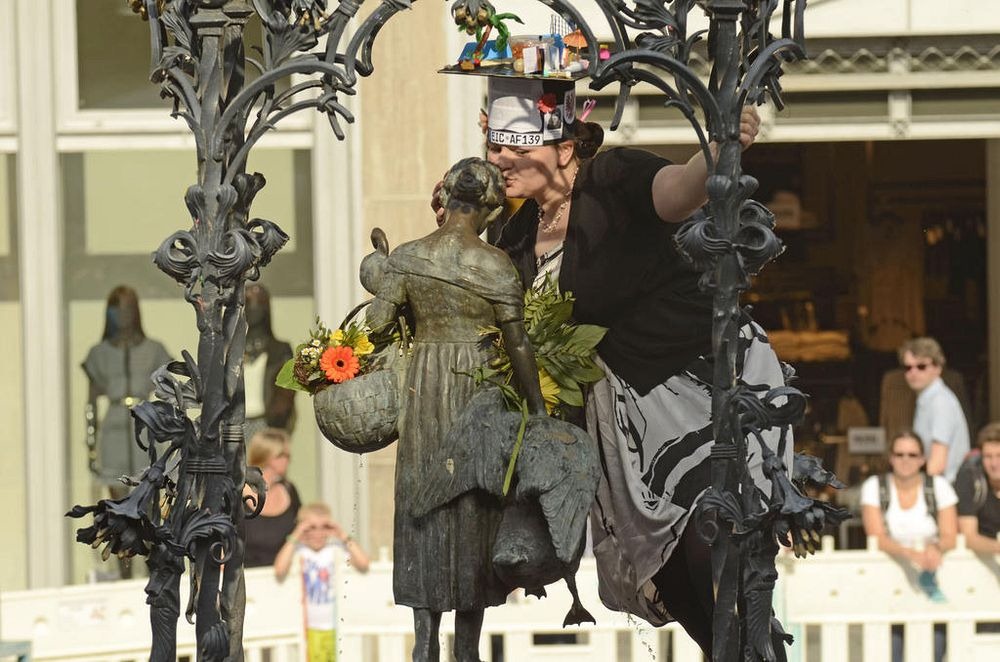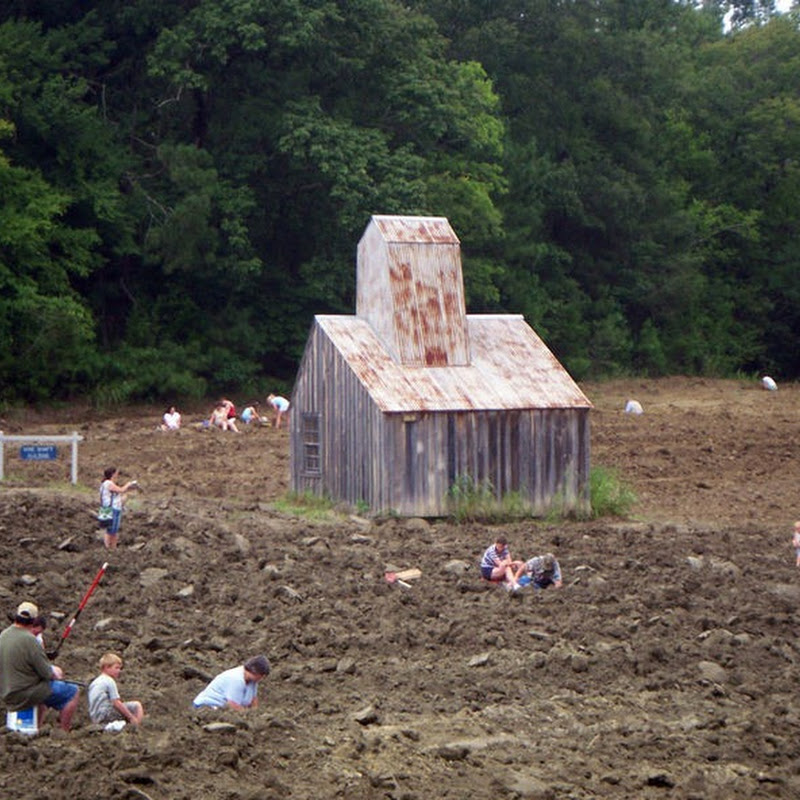Located halfway between Hamburg and Frankfurt, near to the Harz mountains, the town of Göttingen is best known for its university which was founded in 1734 and gradually became one of the most renowned and the most visited university of Europe. The University of Göttingen has produced well-known historical figures, philosophers, mathematicians and scientists in various disciplines, including 47 Nobel laureates who had either studied or worked here. John von Neumann, Werner Heisenberg, Enrico Fermi, Carl Friedrich Gauss, Bernhard Riemann, David Hilbert, and J. Robert Oppenheimer, to name a few, were all students at the University of Göttingen. Famous physicists Max Planck, Neils Bohr, and Max Born taught here.
Understandably, Göttingen became officially a 'University town' with nearly one-third of its current population either students or faculty and staff employed by the university. And like most university towns, Göttingen has developed its own quaint traditions. One of them involves the bronze statue at a fountain in front of the old town hall.

Photo credit: AKA 64/Panoramio
The statue of the Goose Girl or Gänseliesel was erected in 1901 after the old fountain, which was falling apart, was pulled down. The statue depicts a young girl carrying three geese in her arms. Although Wikipedia maintains that the “Gänseliesel fountain does not have any particular connection to the history of the town,” it can’t be a mere coincidence that the author of the famous fairy tale “Goose Girl”, based on which the statue was created, were the Brothers Grimm who were also an alumni of the University.
In any case, soon after the statue and fountain was erected, a tradition developed. Every student who acquires a doctorate degree at the University of Göttingen are drawn in handcarts from the Great Hall to the Gänseliesel fountain, where they are required to climb the fountain and kiss the statue of the goose girl. Bouquets of flowers are also offered. Originally, all newly enrolled students got the chance to kiss the statue but the tradition changed over time. Now only doctorates are allowed to do so.
Officially, the practice is forbidden but not enforced. In fact, both the city of Göttingen and the university advertise themselves with pictures of PhD graduates kissing the girl.
Unfortunately, due to vandalism the original statue created by the sculptor Paul Nisse was removed and is now kept at the town’s museum. What you see now at the fountain is a copy.

Photo credit: Daniel Schwen/Wikimedia

Photo credit: shop.goettinger-tageblatt.de

Photo credit: shop.goettinger-tageblatt.de

Photo credit: Tony Cheng/Flickr

Photo credit: Tony Cheng/Flickr

Photo credit: Daniel Schwen/Wikimedia
Sources: Wikipedia / www.uni-goettingen.de
Understandably, Göttingen became officially a 'University town' with nearly one-third of its current population either students or faculty and staff employed by the university. And like most university towns, Göttingen has developed its own quaint traditions. One of them involves the bronze statue at a fountain in front of the old town hall.

Photo credit: AKA 64/Panoramio
The statue of the Goose Girl or Gänseliesel was erected in 1901 after the old fountain, which was falling apart, was pulled down. The statue depicts a young girl carrying three geese in her arms. Although Wikipedia maintains that the “Gänseliesel fountain does not have any particular connection to the history of the town,” it can’t be a mere coincidence that the author of the famous fairy tale “Goose Girl”, based on which the statue was created, were the Brothers Grimm who were also an alumni of the University.
In any case, soon after the statue and fountain was erected, a tradition developed. Every student who acquires a doctorate degree at the University of Göttingen are drawn in handcarts from the Great Hall to the Gänseliesel fountain, where they are required to climb the fountain and kiss the statue of the goose girl. Bouquets of flowers are also offered. Originally, all newly enrolled students got the chance to kiss the statue but the tradition changed over time. Now only doctorates are allowed to do so.
Officially, the practice is forbidden but not enforced. In fact, both the city of Göttingen and the university advertise themselves with pictures of PhD graduates kissing the girl.
Unfortunately, due to vandalism the original statue created by the sculptor Paul Nisse was removed and is now kept at the town’s museum. What you see now at the fountain is a copy.

Photo credit: Daniel Schwen/Wikimedia

Photo credit: shop.goettinger-tageblatt.de

Photo credit: shop.goettinger-tageblatt.de

Photo credit: Tony Cheng/Flickr

Photo credit: Tony Cheng/Flickr

Photo credit: Daniel Schwen/Wikimedia
Sources: Wikipedia / www.uni-goettingen.de
The Goose Girl of Göttingen
4/
5
Oleh
Chandu Numerology










